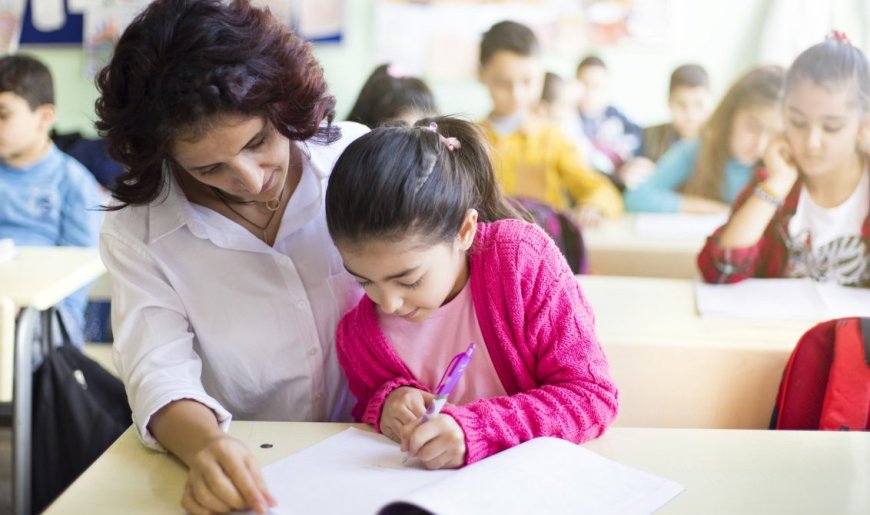Strengths and qualities of children with dyslexia that make them unique

Dyslexia is often seen as a learning problem, but it makes these children have many virtues.
Dyslexia is almost always talked about in terms of difficulties and problems in learning, emotional... But its strong points are rarely highlighted (and there are many!). Among some of the main strengths or qualities of many children with dyslexia we find that they are sensitive, creative, intuitive, enterprising.
It is precisely these qualities that make children with dyslexia different and in a certain way special, and at the same time have more difficulties in learning. Let's say that their way of thinking, of feeling, of perceiving the world does not fit with what they are asked to learn or how they are asked to learn...
- Children with dyslexia have a different way of learning
- The great strengths and qualities of children with dyslexia
Children with dyslexia have a different way of learning
Children with dyslexia are often branded as 'immature', of being in the clouds, of being too childish... Nothing could be further from the truth. The degree of maturity should not be measured by whether you are more or less imaginative, creative, or if you are still enthusiastic about dinosaurs at 12 years old or have a rich and fantasy-filled inner world.
In the consultation, when I evaluate boys and girls with dyslexia, and I have to communicate and explain to families what dyslexia is, I always say the same thing: dyslexia, among many other things, is a different way of learning and of seeing world.
This different way of learning leads to learning difficulties if we do not teach them how they learn, but at the same time it is what makes up their strengths and strong points. And those strengths are wonderful. I always try to make families focus on what makes them who they are: different and great.
I tell them about my experience with these children, but also about my personal experience, as a sister and cousin of dyslexics, and I always try to make them see that not everything is bad and a problem, but you have to see with different eyes. Understanding and understanding how they are and how they see the world is the key to being able to work with them and help them in their difficulties.
These strengths can be the cause or consequence of dyslexia, that is, some skills will have been developed to compensate for certain deficits, but others will be precisely the result of that different brain organization that characterizes them. Be that as it may, you have to value their qualities and talk about them in terms of strengths and not just learning difficulties.
The great strengths and qualities of children with dyslexia
And what are all those strengths? Below we have compiled some of the main strengths and qualities that are found in many children with dyslexia.
- Children with dyslexia are creative, imaginative and have a very rich inner world
This is precisely what makes them seem clueless, to be in their world, to live in the clouds. But it is one of his most positive qualities.
That creativity and capacity for imagination translates into a great ability to solve problems in a creative and different way. This is what is called 'out of the box' thinking or out of the box or divergent thinking. The problem is that what is encouraged in school is convergent thinking, that is, looking for the solution from among several alternatives.
- They are very curious, and that translates into a desire to learn
They ask, they discover, they investigate... They are born explorers, and they learn best when we let them ask, investigate and discover. I always remember my little cousin, who found it more interesting to look at the fish tank and study his fish (how they swam, how they laid eggs and hatched, etc.) than to watch television. Or wondered how a grasshopper jumped and studied and watched them for hours.
- Good visuospatial reasoning
Children with dyslexia learn and build learning visually. They have an extraordinary ability to manage space, think in images and also excel in visuospatial memory. They may fail in the orientation in space and in the organization of it (concepts such as right and left or before and after, they are difficult for them to handle) but their visual memory is fantastic.
If you ask a person with dyslexia how to get somewhere, they won't give you directions like 'go down the street, take the second right, and at the third street take the detour to the right'. It is more common for him to say something like: 'continue down the street and when you see a store on the corner that sells bread with a brown awning, turn there and continue until you see a store with a green awning with a dog drawn on the window' .
They are capable of visually managing space, and perhaps for this reason, many architects, designers, and photographers are dyslexic.
- Sensitive to what surrounds them, not only emotionally, but also in their way of thinking
Children with dyslexia think globally, they take into account all the elements that surround them, and that is why they pay more attention to the whole than to the parts.
- Very good episodic memory
Compared to poor working or short-term memory, their memory of experiences, of events they have lived through is superior.
These are some of the most representative qualities, but each child is different and each dyslexic is different, peculiar and unique, but it is important to value their qualities and adapt to them, to their way of learning and seeing the world, and Only in this way will we be able to develop their full potential and what is more important, they will be able to develop a strong and positive self-esteem.
